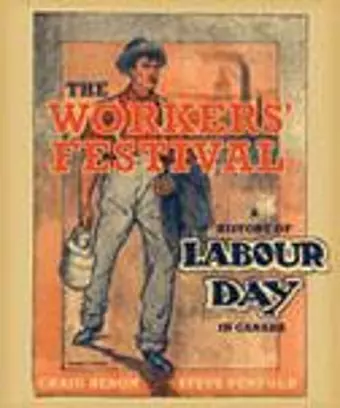The Workers' Festival
A History of Labour Day in Canada
Craig Heron author Steve Penfold author
Format:Paperback
Publisher:University of Toronto Press
Published:29th Jul '05
Currently unavailable, and unfortunately no date known when it will be back
This paperback is available in another edition too:
- Hardback£82.00(9780802038470)

'Carefully documented and analytically nuanced, The Workers' Festival is an ambitious, original, and highly sophisticated study in the history of public culture that addresses the evolution of one of the more historically complicated holidays on the Canadian calendar. Craig Heron and Steve Penfold succeed in providing a thoughtful and illuminating portrait of the changing place of labour in Canadian society.' -- David Frank, Department of History, University of New Brunswick 'With this full-blown celebration of working people, Craig Heron and Steve Penfold have accomplished what all social historians strive for: bringing to life a piece of our past, helping us to examine it and learn from it. Packed with illustrations and photos, The Workers' Festival is an engaging read that captures the spirit of another time and gives a sense of where the modern labour "demonstration" originated.' -- Paul Moist, National President, Canadian Union of Public Employees
The Workers' Festival ranges widely into many key themes of labour history – union politics and rivalries, radical movements, religion, race and gender, and consumerism/leisure – as well as cultural history – public celebration/urban procession, urban space and communication, and popular culture.
For most Canadians today, Labour Day is the last gasp of summer fun: the final long weekend before returning to the everyday routine of work or school. But over its century-long history, there was much more to the September holiday than just having a day off.
In The Workers' Festival, Craig Heron and Steve Penfold examine the complicated history of Labour Day from its origins as a spectacle of skilled workers in the 1880s through its declaration as a national statutory holiday in 1894 to its reinvention through the twentieth century. The holiday's inventors hoped to blend labour solidarity, community celebration, and increased leisure time by organizing parades, picnics, speeches, and other forms of respectable leisure. As the holiday has evolved, so too have the rituals, with trade unionists embracing new forms of parading, negotiating, and bargaining, and other social groups re-shaping it and making it their own. Heron and Penfold also examine how Labour Day's monopoly as the workers' holiday has been challenged since its founding, with alternative festivals arising such as May Day and International Women's Day.
The Workers' Festival ranges widely into many key themes of labour history – union politics and rivalries, radical movements, religion (Catholic and Protestant), race and gender, and consumerism/leisure – as well as cultural history – public celebration/urban procession, urban space and communication, and popular culture. From St. John's to Victoria, the authors follow the century-long development of the holiday in all its varied forms.
'... Heron and Penfold have laid invaluable and long-overdue groundwork in a field of study that to date has been remarkably poorly documented.' -- Jan Ravensbergen * The Montreal Gazette *
ISBN: 9780802048868
Dimensions: 223mm x 185mm x 22mm
Weight: 660g
340 pages